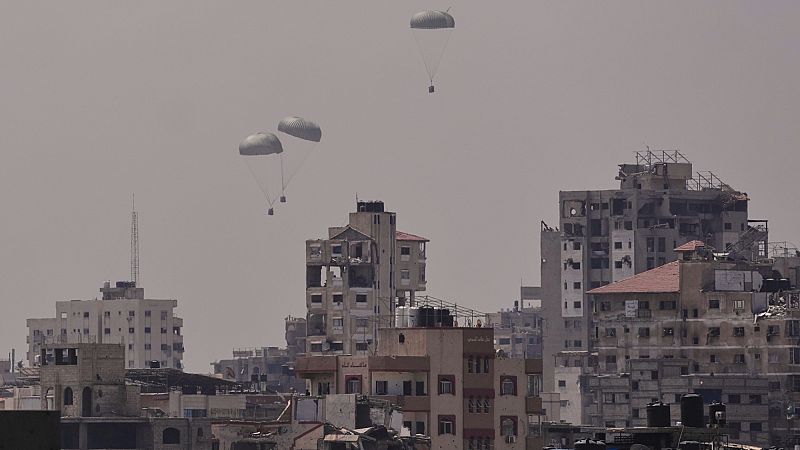World leaders criticise Israel’s Gaza City takeover decision as humanitarian concerns rise

World leaders have criticised Israel’s decision to seize control of Gaza City, warning the move risks exacerbating the already catastrophic humanitarian crisis in the Gaza Strip.
The Israeli security cabinet approved the controversial plan early Friday, marking a new escalation in the country’s nearly two-year-long war against Hamas.
The announcement from Israeli Prime Minister Benjamin Netanyahu’s office came after hours of debate among senior security officials. The decision to move into Gaza City was made in light of Netanyahu’s earlier suggestions that the military would "take control of all Gaza," but also his claim that Israel had no intention of occupying the Strip permanently.
UK Prime Minister Keir Starmer condemned the move in strong terms, stating: “Israel’s decision to further escalate its offensive in Gaza is wrong and we urge it to reconsider immediately.”
“This action will do nothing to bring an end to this conflict or to help secure the release of the hostages. It will only bring more bloodshed,” Starmer said in a statement.
“What we need is a ceasefire, a surge in humanitarian aid, the release of all hostages by Hamas and a negotiated solution.”
Starmer added that Hamas “can play no part in the future of Gaza and must leave as well as disarm.” The UK, he said, is working with allies on a long-term strategy to establish peace in the region “as part of a two-state solution.”
Finland’s Foreign Minister Elina Valtonen echoed those concerns, stating she was “extremely worried” about the worsening humanitarian conditions in Gaza.
“We hope for an immediate Gaza ceasefire and the immediate release of Israeli hostages,” she said.
In Australia, Foreign Minister Penny Wong called on Israel to back down, warning that “permanent forced displacement is a violation of international law.”
US President Donald Trump commented earlier this week that the decision was “really up to Israel” and blamed Hamas for stalling negotiations. "They didn’t really want to make a deal," he said.
UN High Commissioner for Human Rights Volker Türk slammed the move, saying: “The Israeli government’s plan for a complete military takeover of the occupied Gaza Strip must be immediately halted.”
“It runs contrary to the ruling of the International Court of Justice that Israel must bring its occupation to an end as soon as possible, to the realisation of the agreed two-state solution and to the right of Palestinians to self-determination,” he added.
'Declaration of a war crime'
Reactions within Israel were divided. Opposition leader Yair Lapid denounced the government’s plan, saying it went against the advice of military leadership.
"The plan is completely contrary to the position of the military and the defence establishment, without taking into consideration the burnout and the exhaustion of the combat troops," he said.
Chief of the General Staff Lieutenant General Eyal Zamir warned earlier on Thursday that the plan would endanger the lives of the hostages and further stretch the military.
Zamir has repeatedly clashed with the security cabinet in recent days, notably over the Gaza proposal.
Prior to the security cabinet session on Thursday, Netanyahu denied Israel had any intentions of permanently controlling Gaza in its entirety.
"We don't want to keep it. We want to have a security perimeter," the Israeli leader told Fox News. "We don't want to govern it. We don't want to be there as a governing body."
He said that Israel intends to hand over the Strip to a coalition of Arab forces that would govern it.
The announcement comes as humanitarian organisations continue to warn of severe conditions in Gaza, where widespread hunger and displacement are mounting daily.
The ongoing Israel-Hamas war in Gaza has displaced nearly the entire population of Gaza, destroyed over 60% of the enclave’s buildings and infrastructure, and brought most of its 2 million residents to the brink of famine.
The war began when Hamas-led militants attacked southern Israel on 7 October 2023, killing some 1,200 people and taking 251 hostage.
Fifty hostages are still being held, although fewer than half of them are believed to be alive.
Israel’s subsequent offensive resulted in the deaths of over 60,000 Palestinians, according to the Hamas-run Gaza Health Ministry, whose figures do not distinguish between fighters and civilians.
The Israeli military says nearly 900 of its soldiers have died since the start of the war.
Today

